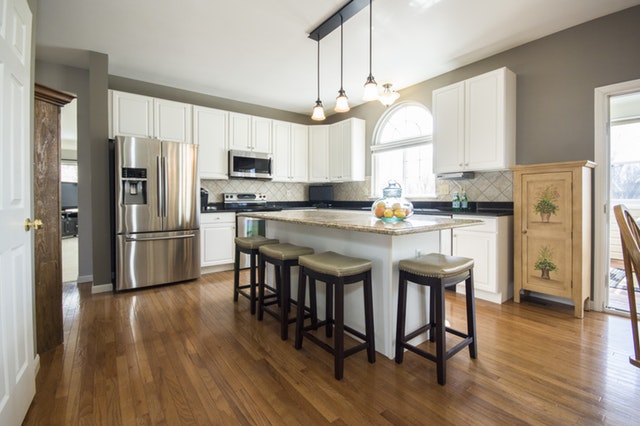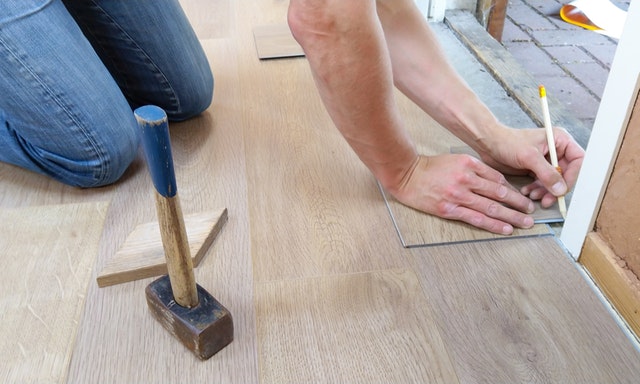Auction 101: Bidding On Your First Property
 With the right combination of strategy, knowledge, and luck, flipping houses can create big profits for short-term investors. However, your path to success starts at your first auction.
With the right combination of strategy, knowledge, and luck, flipping houses can create big profits for short-term investors. However, your path to success starts at your first auction.
For first-timers who are intimidated by their lack of experience at public auctions, follow these steps to ease the confusion of your first property purchase.
Locate Auctions In Your Area
Finding live auctions is as simple as an internet search. Websites run by government agencies list homes that have been seized due to tax liens or foreclosures. Try searching databases maintained by:
- Fannie Mae
- The FDIC
- The US Department of Housing and Urban Development
Another option is your local newspaper. Banks publish foreclosure notices in the public notice section. You can also find advertisements from auction companies and information from the sheriff’s or county tax collector’s office that helps you hunt down low-cost properties.
For busy investors who plan to use real estate as an extra income, it could be worth your while to enlist the help of a professional real estate agent. They often keep lists of homes in foreclosure in the surrounding area.
Assess Available Properties
All properties are not created equal. To find the right fit for your project, find the following information for each potential listing.
- Current bid price
- Previous purchase price
- Length of time property has been unoccupied
- Property condition
- Number of bedrooms and bathrooms
- Sales history of homes in the surrounding neighborhood
This information isn’t always readily available. You may be able to find more information via an MLS search, public lands records, or various real estate websites that publish property data. Of course, if you’re working with a real estate agent, they will provide all the data you need to make the right decision.
Some auction sites include pictures and map data. At other auctions, bidders may be allowed to visit the property or hold open houses before the sale occurs.
Perform A Title Search
When you’ve found a few properties that you like, take some time to do a thorough title search. This process ensures your property doesn’t come with some unfortunate surprises.
During your search, you’ll need to:
- Obtain records from the tax assessor to verify the tax status of the property.
- Locate the property’s deed either physically or online.
- Investigate the property’s sales history to ensure no one else can claim ownership.
- Check for liens, unpaid mortgage commitments, and legal judgments against the property.
Once a property has cleared these steps, you’ll be ready to start placing bids on your first investment property.
Last but not least: Don’t overlook your financing options. Be sure to meet with your trusted home mortgage professional to get your pre-approval in place. This important step will help you create an affordable budget.

 There are many home renovation projects that can increase the comfort and visual appeal of a dwelling. Owners who plan to sell their home in the future, however, prefer to focus on projects that will return a healthy profit at closing.
There are many home renovation projects that can increase the comfort and visual appeal of a dwelling. Owners who plan to sell their home in the future, however, prefer to focus on projects that will return a healthy profit at closing. Winter typically isn’t one of the busier home buying seasons – those seasons are reserved for spring and summer. But to think that you can’t sell your home at market value during the winter months is being naive. In fact, you can even use some of the characteristics that define the season to your advantage.
Winter typically isn’t one of the busier home buying seasons – those seasons are reserved for spring and summer. But to think that you can’t sell your home at market value during the winter months is being naive. In fact, you can even use some of the characteristics that define the season to your advantage. There are several things to do when you prepare to list your home for sale. One of the projects you’ll need to do is complete certain repairs. Your home should be in the best possible condition before your real estate agent shows it to potential buyers.
There are several things to do when you prepare to list your home for sale. One of the projects you’ll need to do is complete certain repairs. Your home should be in the best possible condition before your real estate agent shows it to potential buyers. There comes a time in every young homeowner’s life when they need a bigger house. When you buy a starter home, it’s unlikely that will be your forever home. But how do you know when it’s time to spend the time and effort to upgrade to a larger home?
There comes a time in every young homeowner’s life when they need a bigger house. When you buy a starter home, it’s unlikely that will be your forever home. But how do you know when it’s time to spend the time and effort to upgrade to a larger home?